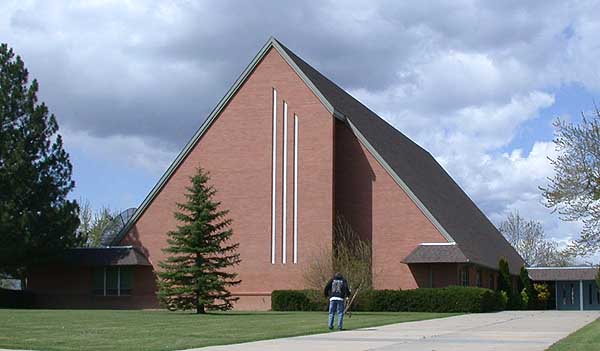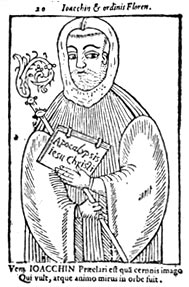|
Morris Venden
Morris L. Venden (April 5, 1932 – February 10, 2013) was a prominent Seventh-day Adventist preacher, teacher, and author, who was also a member of the ''Voice of Prophecy'' team as an associate speaker. Biography Venden was born to Melvin Venden and Ivy Ruth Venden. He graduated from Fresno Adventist Academy in 1949, and received a degree from Pacific Union College, as well as several honorary degrees. He died on February 10, 2013, in College Place, Washington succumbing to FTD (Frontotemporal Dementia), a rare form of dementia. He pastored several large Seventh-day Adventist churches such as the La Sierra University Church and Pacific Union College Church on the campus of Pacific Union College in California, and Union College Church in Nebraska. Later he pastored the Azure Hills Seventh-day Adventist Church near Loma Linda, California, from which he retired in August, 1998. [...More Info...] [...Related Items...] OR: [Wikipedia] [Google] [Baidu] |
Pacific Union College
Pacific Union College (PUC) is a private university, private liberal arts colleges in the United States, liberal arts college in Angwin, California. It is the only four-year college in Napa County, California, Napa County. It is a coeducational residential college with an almost exclusively undergraduate student body. PUC is accredited by the Western Association of Schools and Colleges and maintains various programmatic accreditations for specific programs. It is affiliated with the Seventh-day Adventist Church. It was the 12th college or university founded in the state of California. Enrollment at Pacific Union College is roughly 1,600. The school offers roughly 70 undergraduate majors and one master's program organized in 20 academic departments. The campus occupies of the college's in property. History Pacific Union College has had a total of List of presidents of Pacific Union College, twenty-four presidents. The first eight of these served while the school was still in ... [...More Info...] [...Related Items...] OR: [Wikipedia] [Google] [Baidu] |
Seventh-day Adventist Eschatology
The Seventh-day Adventist Church holds a unique system of eschatology, eschatological (or Eschatology, end-times) beliefs. Adventist eschatology, which is based on a historicism (Christianity), historicist interpretation of prophecy, is characterised principally by the premillennialism, premillennial Second Coming of Christ. Traditionally, the church has taught that the Second Coming will be preceded by a global crisis with the Christian Sabbath, Sabbath as a central issue . At Jesus' return, the righteous will be taken to heaven for millennium, one thousand years. After the millennium the unsaved cease to exist as they will be punished by annihilationism, annihilation while the saved will live on a recreated Earth for eternity. The foremost sources are the biblical books of Book of Daniel, Daniel and Book of Revelation, Revelation. Jesus' statements in Matthew 24 for instance, as well as many other Bible verses are also used. The classic Adventist commentary on the end-times was U ... [...More Info...] [...Related Items...] OR: [Wikipedia] [Google] [Baidu] |
Sabbath In Seventh-day Churches
The seventh-day Sabbath, observed from Friday evening to Saturday evening, is an important part of the beliefs and practices of seventh-day churches. These churches emphasize biblical references such as the ancient Hebrew practice of beginning a day at sundown, and the Genesis creation narrative wherein an "evening and morning" established a day, predating the giving of the Ten Commandments (thus the command to "remember" the sabbath). They hold that the Old and New Testament show no variation in the doctrine of the Sabbath on the seventh day. Saturday, or the seventh day in the weekly cycle, is the only day in all of scripture designated using the term Sabbath. The seventh day of the week is recognized as Sabbath in many languages, calendars, and doctrines, including those of Catholic, Lutheran, and Orthodox churches. It is still observed in modern Judaism in relation to Mosaic Law. In addition, the Orthodox Tewahedo Churches uphold Sabbatarianism, observing the Sabbath on Satur ... [...More Info...] [...Related Items...] OR: [Wikipedia] [Google] [Baidu] |
Three Angels' Messages
The "three angels' messages" is an interpretation of the messages given by three angels in Revelation . The Seventh-day Adventist church teaches that these messages are given to prepare the world for the second coming of Jesus Christ, and sees them as a central part of its own mission. Messages *Angel One (Rev 14:6–7): "Fear God and give him glory, because the hour of his judgment has come. Worship him who made the heavens, the earth, the sea and the springs of water." *Angel Two (Rev 14:8): "Fallen! Fallen is Babylon the Great, which made all the nations drink the maddening wine of her adulteries." *Angel Three (Rev 14:9–11): "If anyone worships the beast and its image and receives its mark on their forehead or on their hand, they, too, will drink the wine of God’s fury, which has been poured full strength into the cup of his wrath. They will be tormented with burning sulfur in the presence of the holy angels and of the Lamb. And the smoke of their torment will rise for eve ... [...More Info...] [...Related Items...] OR: [Wikipedia] [Google] [Baidu] |
Historicism (Christianity)
In Christian eschatology, historicism is a method of interpretation of biblical prophecies which associates symbols with historical persons, nations or events. The main primary texts of interest to Christian historicists include apocalyptic literature, such as the Book of Daniel and the Book of Revelation. It sees the prophecies of Daniel as being fulfilled throughout history, extending from the past through the present to the future. It is sometimes called the continuous historical view. Commentators have also applied historicist methods to ancient Jewish history, to the Roman Empire, to Islam, to the Papacy, to the Modern era, and to the end time. The historicist method starts with Daniel 2 and works progressively through consecutive prophecies of the book–chapters 7, 8 and 11–resulting in a view of Daniel's prophecies very different from preterism and futurism. Almost all Protestant Reformers from the Reformation into the 19th century held historicist views. Overview ... [...More Info...] [...Related Items...] OR: [Wikipedia] [Google] [Baidu] |
Christian Conditionalism
In Christian theology, conditionalism or conditional immortality is a concept in which the gift of immortality is attached to (conditional upon) belief in Jesus Christ. This doctrine is based in part upon another biblical argument, that the human soul is naturally mortal, immortality (" eternal life") is therefore granted by God as a gift. This viewpoint stands in contrast to the more popular doctrine of the "natural immortality" of the soul. Conditionalism is practically synonymous with annihilationism, the belief that the unsaved will be ultimately destroyed, rather than suffer unending physical torment in hell. The view is also sometimes connected with the idea of soul sleep, in which the dead sleep unconscious until the Resurrection of the Dead to stand for a Last Judgment before the World to Come. Protestantism The British Evangelical Alliance ''ACUTE'' report states the doctrine is a "significant minority evangelical view" that has "grown within evangelicalism in recent year ... [...More Info...] [...Related Items...] OR: [Wikipedia] [Google] [Baidu] |
Second Advent
The Second Coming (sometimes called the Second Advent or the Parousia) is a Christian (as well as Islamic and Baha'i) belief that Jesus will return again after his ascension to heaven about two thousand years ago. The idea is based on messianic prophecies and is part of most Christian eschatologies. Terminology Several different terms are used to refer to the Second Coming of Christ: In the New Testament, the Greek word ἐπιφάνεια (''epiphaneia'', appearing) is used five times to refer to the return of Christ. The Greek New Testament uses the Greek term ''parousia'' (παρουσία, meaning "arrival", "coming", or "presence") twenty-four times, seventeen of them concerning Christ. However, parousia has the distinct reference to a period of time rather than an instance in time. At parousia is used to clearly describe the period of time that Noah lived. The Greek word ''eleusi''s which means "coming" is not interchangeable with parousia. So this parousia or "pres ... [...More Info...] [...Related Items...] OR: [Wikipedia] [Google] [Baidu] |
Pillars Of Adventism
The Pillars of Adventism are landmark doctrines for Seventh-day Adventists. They are Bible doctrines that define who they are as a people of faith; doctrines that are "non-negotiables" in Adventist theology. The Seventh-day Adventist church teaches that these Pillars are needed to prepare the world for the second coming of Jesus Christ, and sees them as a central part of its own mission. Adventists teach that the Seventh-day Adventist Church doctrines were both a continuation of the reformation started in the 16th century and a movement of the end time rising from the Millerites, bringing God's final messages and warnings to the world. The Pillars of Adventism The early Adventists emphasized the concept of "present truth"—see (NKJV). James White explained, "The church asever had a present truth. The present truth now, is that which shows present duty, and the right position for us…" "Present truth is ''present'' truth, and not future truth, and the Word as a lamp shines brigh ... [...More Info...] [...Related Items...] OR: [Wikipedia] [Google] [Baidu] |
Investigative Judgment
The investigative judgment, or pre-Advent Judgment (or, more accurately the pre-Second Advent Judgment), is a unique Seventh-day Adventist doctrine, which asserts that the divine judgment of professed Christians has been in progress since 1844. It is intimately related to the history of the Seventh-day Adventist Church and was described by one of the church's pioneers Ellen G. White as one of the pillars of Adventist belief. It is a major component of the broader Adventist understanding of the "heavenly sanctuary", and the two are sometimes spoken of interchangeably. Outline of the Doctrine Biblical basis Seventh-day Adventists believe that texts such as Hebrews 8:1- 2 teach that the two-compartment design of the earthly sanctuary built by Moses, was in fact a model patterned after the Heavenly Sanctuary "which the Lord set up, not man." Hebrews 8:2 (NASB). They believe that statements in as well as statements found in Hebrews chapters 8 and 9, reveal that Christ entered the f ... [...More Info...] [...Related Items...] OR: [Wikipedia] [Google] [Baidu] |
Prophecy In The Seventh-day Adventist Church
Seventh-day Adventists believe that Ellen G. White, one of the church's co-founders, was a prophetess, understood today as an expression of the New Testament spiritual gift of prophecy. Seventh-day Adventist believe that White had the spiritual gift of prophecy, but that her writings are a lesser light to the Bible, which has ultimate authority. According to the 28 Fundamentals the core set of theological beliefs held by the Seventh-day Adventist Church, states that Adventists accept the Bible as their only creed and can be read online on the website of the Seventh-day Adventist Church. The 18th of the 28 Fundamentals states the Adventists viewpoint on the Gift of Prophecy: :"One of the gifts of the Holy Spirit is prophecy. This gift is an identifying mark of the remnant church and was manifested in the ministry of Ellen. G. White . As the Lord's messenger, her writings are a continuing and authoritative source of truth which provide for the church comfort, guidance, instruction, ... [...More Info...] [...Related Items...] OR: [Wikipedia] [Google] [Baidu] |
Inspiration Of Ellen G
Inspiration, inspire, or inspired often refers to: * Artistic inspiration, sudden creativity in artistic production * Biblical inspiration, the doctrine in Judeo-Christian theology concerned with the divine origin of the Bible * Creative inspiration, sudden creativity when a new invention is created * Inhalation, the movement of air into the lungs, breathing in Inspiration and the like may also refer to: Places * Inspiration, Arizona, a community in the United States of America Brands and enterprises * Inspire (fragrance), a fragrance by Christina Aguilera * Inspiration (car), a British-designed and built steam-propelled car designed by Glynne Bowsher * '' Carnival Inspiration'', a Fantasy-class cruise ship operated by Carnival Cruise Line * Honda Inspire, a luxury sedan introduced by Honda in 1990 * Inspiration, a type of diver's rebreather scuba made by AP Diving * Inspire (company), a healthcare social network Arts, entertainment, and media Films * ''Inspiration'' (1 ... [...More Info...] [...Related Items...] OR: [Wikipedia] [Google] [Baidu] |
Teachings Of Ellen G
A school of thought, or intellectual tradition, is the perspective of a group of people who share common characteristics of opinion or outlook of a philosophy, discipline, belief, social movement, economics, cultural movement, or art movement. History The phrase has become a common colloquialism which is used to describe those that think alike or those that focus on a common idea. The term's use is common place. Schools are often characterized by their currency, and thus classified into "new" and "old" schools. There is a convention, in political and philosophical fields of thought, to have "modern" and "classical" schools of thought. An example is the modern and classical liberals. This dichotomy is often a component of paradigm shift. However, it is rarely the case that there are only two schools in any given field. Schools are often named after their founders such as the "Rinzai school" of Zen, named after Linji Yixuan; and the Asharite school of early Muslim philosophy, nam ... [...More Info...] [...Related Items...] OR: [Wikipedia] [Google] [Baidu] |





